Not long ago, on OUR WEBSITE we talked about various complaints about animal sanctuaries that are not such, and we promised a guide to identify them. Here you will find it.

With the turbulent world we have, where the inversion of values prevails and the saturation of information often makes us not even know how to differentiate between what is right and what is wrong, blame for powerful advertising tools (even subliminal) used to convince us that the bad is good, is that again animals are the "star victims" of all this.
From the 60's until today, there has been an increase in awareness of the environment and also an increase in the number of organizations that have been born with the intention of preserving species, where animals are initially recovered from various illicit activities. Be cured, and subsequently be released into their natural habitat.
Everything was fine until someone realized that this could give them a lot more money (more than was needed for the activity itself) if they advertised it well. And because people (for lack of time mostly) were not informed in depth about what they were reading, they ended up sending their money to places that are not really what they advertise to be.
People help because it is born of their heart to do so, but by not taking the time to investigate, they may end up donating to these types of places that are shown as sanctuaries, or "nature reserves", but which they are not.
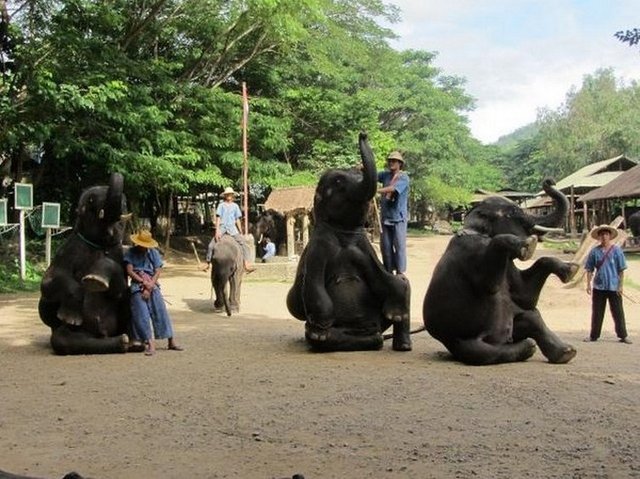
The differences between a false and a true sanctuary are usually very subtle, but when we learn to observe with critical eyes, they are visible and that is why, we do this post, as a tool to analyze these places, is that we list these 5 basic questions that you must do before deciding a donation.
Although there are rare exceptions, these 5 questions will help you separate the good from the bad quickly.
1 - IS PROCREATION ENCOURAGED OR ALLOWED IN THE PLACE? DO YOU SEE PUPPIES IN THE PLACE FREQUENTLY?
Good sanctuaries do not breed animals. Although there are rare exceptions, a general rule of thumb is to ask whether the center allows the reproduction of animals in captivity. If they say yes, or if you see that they do ... that is not an honorable sanctuary.
"No legitimate sanctuary will breed babies," says the Big Cat Rescue, a large cat sanctuary located in Florida, United States. "If you see a facility where there are often puppies, then you should know that place is part of the problem and not part Of the solution "
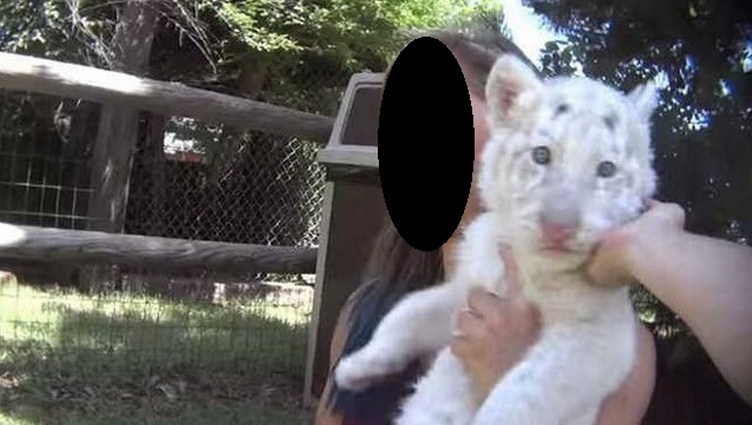
It is also logical that some sanctuaries have rescued puppies, or whose mother came to the place pregnant and gave birth there. This situation is very common in farm animal sanctuaries. But all the adult animals in a decent sanctuary must be placed under a birth control system, or separated in season of zeal.
Although many of these organizations swear by God and their families that there is no problem with the puppies that are born there and only reproduce them "for the purpose of preserving the species" particularly when we talk about big cats and exotic animals, THAT IS JUST A CHEAP TALE.
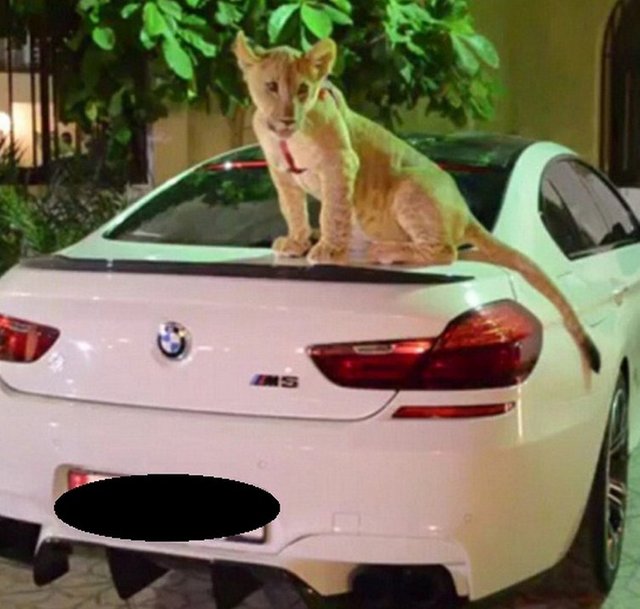
Those babies born rarely or NEVER will go to nature and are often only born to be exchanged with other sanctuaries, as false as they are, or worse .. being sold to the species traffic system, to end up being exterminated to become "hunting trophies" Or end up like a pet in the backyard of someone's house.
2 - ARE ANIMALS TRAINED TO STAY CALMED OR OBEY TRAINERS OR DO TRICKS?
Have you seen those places with big cats or monkeys doing tricks, serving as a frame for a selfie photograph, or elephants being used to walk tourists? We believe that when you see this, it would not be necessary to ask much more about the moral quality of this type of places ...
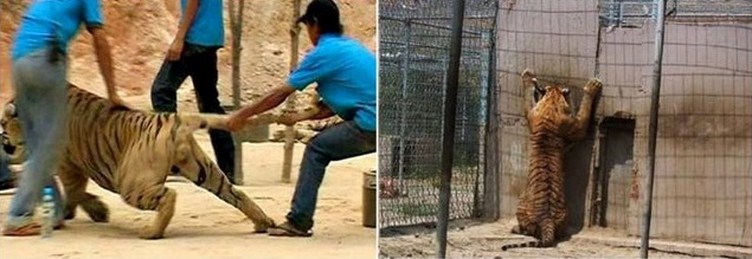
Wild animals are NOT OBEDIENTS to humans and can never learn tricks unless they are trained with negative reinforcements, beatings, electric shocks, lashings, using bullhooks, starving them and psychologically torturing them to "break their will"
There, coaches will tell you that animals are docile because they "like people" or because they were born when they were seen by people, but this is not so. A wild animal is always a wild animal with wild instincts WE NEED TO UNDERSTAND THIS AND RESPECT THIS.
True sanctuaries allow animals to live as close to nature as possible. This means that they give them the choice of how and when they want to interact with people and allow them to hide or evade contact, if it is their will to do so.
Real sanctuaries do not even let tourists get too close to animals, just a few hundred meters away to appreciate them, is the measure they allow and in fact, you will never see animals caged in a true sanctuary, unless the animal is under a medical treatment.
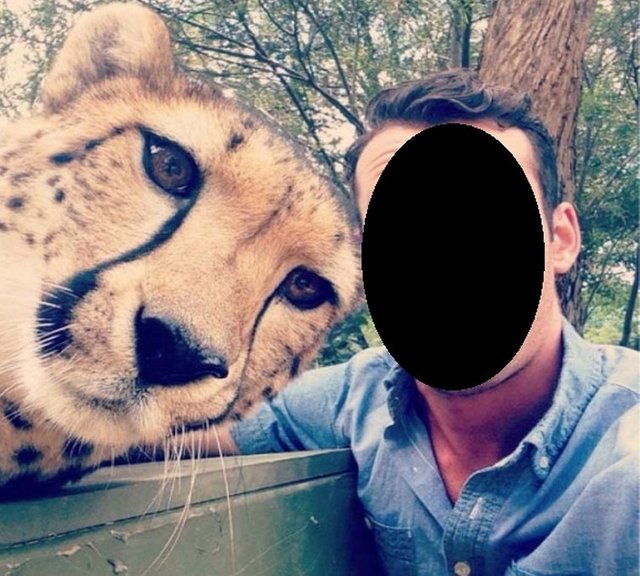
When you see animals in cages or restricted in their freedom to come and go, just for tourists to come and see them ... that is not a true sanctuary.
3 - DO ANIMALS HAVE SUFFICIENT SPACE?
Many so-called "sanctuaries" that are nothing more than undercover zoos fill their mouths saying they "comply" with all existing regulations, but the biggest problem is the poor regulations in that regard that exist. In many countries, barely keeping the animal fed is enough to say "okay" and there you will see them in tiny cages, suffering from psychosis of captivity ... but by "law" there is nothing wrong ... But you see an animal in those conditions and even if it is "legal" certainly you will not see anything good in the situation that suffers
Wildlife regulations in ALL countries are simply THE MINIMUM, the most basic requirement for them to meet those who have wild animals in charge. But if we are only guided by these "minimum" standards, we would be accepting that an animal is "well" in a cage where hardly the animal can walk and where it frequently ends up sleeping on its own faeces.
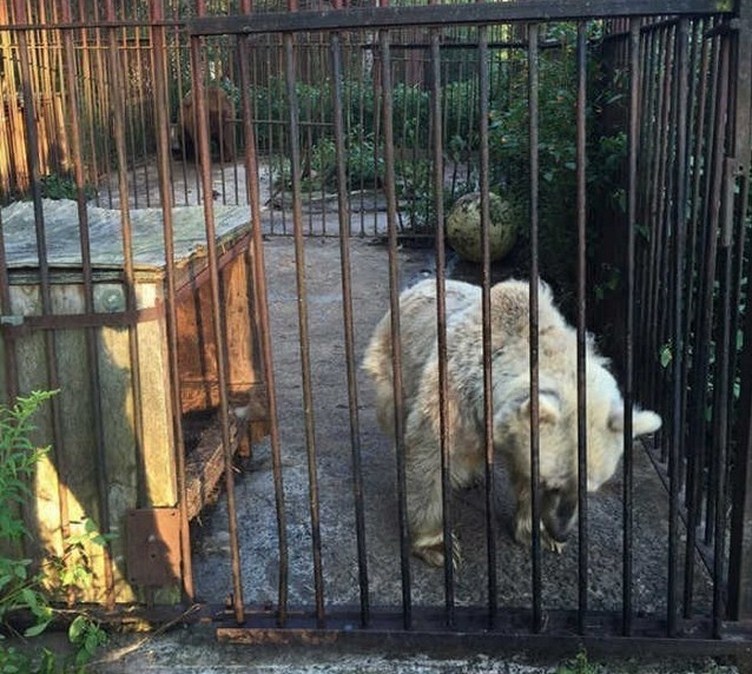
Use your common sense and your critical sense. Does the animal see enough space to attend to its natural behavior, whether running, swimming or climbing? Does their space in that cage resemble anything in their habitat in nature? Look at the fences and the ground, the water must be clean, the floor free of feces ... very often you will see the opposite and yet you will see how the authorities do nothing against these places because they "meet the minimum" and there is Thousands of wild animals die each year in miserable living conditions.
4 - DO THE CAREGIVERS INTERACT WITH THEM?
It is logical that there is nothing wrong with hugging rescued dogs, cats, sheep, horses, cows, among other animals rescued, but when it comes to wild and exotic animals, contact with humans is HARMFUL and contact with the species by the human, for the good of the animal, must be MINIMUM.
In legit sanctuaries you will almost never see caretakers inside the spaces of wild animals, especially those exotic or wild like lions, tigers and bears, because they understand that this is not only dangerous for humans, but is harmful for animals.
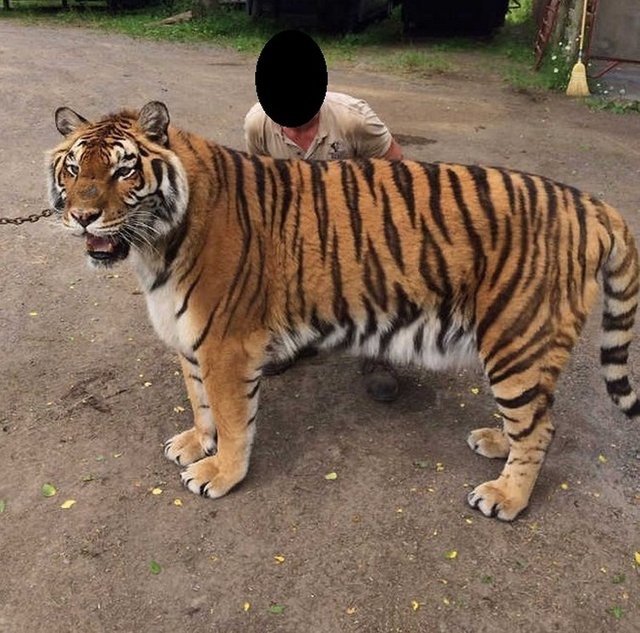
If you see a sanctuary where the caretakers do not stop surrounding the wild animals and constantly manipulate them, or get into the cages to bring them closer to tourists to see them closer ... YOU MAY KNOW THAT PLACE IS NOT A REAL SANCTUARY .
Good sanctuaries keep wild animals, as wild as possible, as much as they are in nature, because the idea is to be able to return those animals to their true home without losing their way of behaving or believe that the human is someone in whom they can trust, because out there, there are hunters, they are human too, and trusting in humans can be deadly for animals when they are in their wild habitat.
5 - DO THEY OFFER TO YOU BE ABLE TO TOUCH THE ANIMALS OR TO TAKE PHOTOS WITH THEM?
The worst of the scenarios is this ... It is even worse than all of the above when in these places, false sanctuaries, allow visitors to pet, handle, and take pictures with the animals a few inches away, or even mounted on them.
Big cats are DRUGGED to keep them docile for this activity, many are filed their teeth to "avoid accidents" and even amputated their claws. This nefarious modality is called "exotic selfie" and is the worst thing you can do against wild animals.
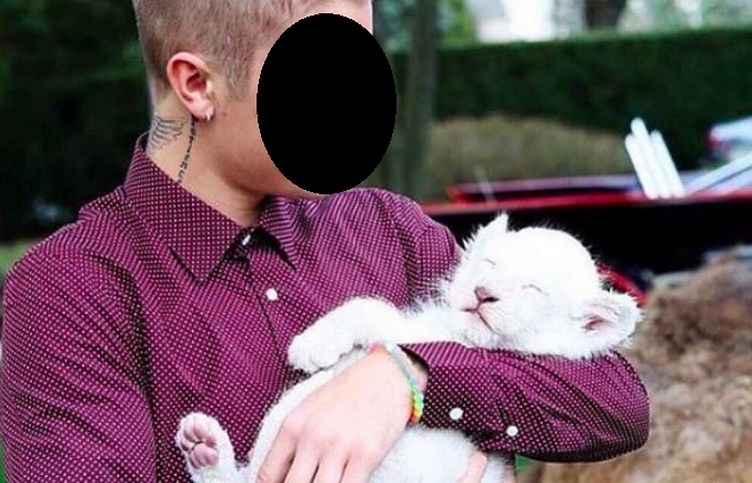
Those animals that offer you to take the "exotic picture", are stolen from their mothers even being babies and there they begin to pass from hand to hand to "accustom" them to humans and force them to do it every day, every month, every year the entire life of this animal SLAVES.
We must CLEARLY differentiate a sanctuary of farm animals, or a shelter of domestic animals, from a sanctuary of wild animals.
Never the manipulation by tourists of the wild animals of a sanctuary will be something that is well. And as for farm animals or domestic, it is not good either huge exposure. Just as you would not want any stranger to touch you all the time, it's the same for animals.
FOLLOW YOUR INSTINCTS
The most important question of all is to see if the animals are happy, but that can be very difficult to answer. The best thing we can do to find out, is try to see if their physical and mental needs according to their free behavior are being fulfilled.
Physically you can verifies that the animals do not appear thin or sick and if they do not exist in them wounds (they are scars or open wounds). Mentally verifies if the animal has toys or something to entertain and interact in the place where it is, which can avoid boredom.
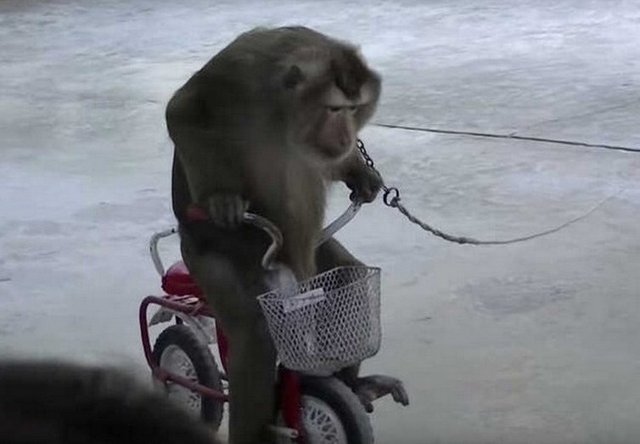
If you see an animal that performs repetitive movements, walking from side to side of its cage, swinging its head constantly or, biting parts of its body until it is hurt THESE ARE SIGNS OF ZOOCOSIS (captive psychosis) and the animal is not happy, nor healthy both physically and emotionally.
Unfortunately there are hundreds of facilities that swear to be saving the animals, or working on their conservation, but in truth they are nothing more than zoos that exploit animals not only to exhibit them, but as we have seen several times in so many years of work, turn them on raw material for "aphrodisiac" products of Chinese medicine (as for example with tigers, lions, elephants and rhinoceroses in China)
It all depends on you and if you can see beyond what they are showing you.
If you want to be sure that you are not supporting any of these immoral activities, whenever you know of one of these places, apply these 5 basic questions and you will have your first critical analysis and you will know how to differentiate it.

The best indicator, and if you are a loving and respectful person of the animals, you will feel in you heart when arriving at those places. If you feel a heavy-hearted environment, when you turn the eyes of animals without shine, when your heart connects with them and you can really feel that they do not want to be there, that's the first alert.
Do not pay attention to the propaganda they can make of a place, or an institution. If you get there, your heart feels all this, follow your instincts, ask yourself the 5 questions and if it is not a true sanctuary, the best thing you can do is share your experience in social networks with your friends explaining because why you don't like that place, and to alert others who do not support a false sanctuary.
It is evident that the true sanctuaries have animals in charge also and for the most part NONE OF THE TRUE SANCTUARIES RECEIVES HELP FROM THE GOVERNMENT IN ANY COUNTRY, so they depend on the donations of the people and the entrance ticket to see the animals.
It is in each one of us, to accept that we will not be able to approach these animals, but not for that, to stop supporting those who help them. Usually the tickets to places where we can pet wild animals, charge very expensive tickets for the "exclusive product" they offer, and the real sanctuaries got cheap tickets but, you can't touch the animals.
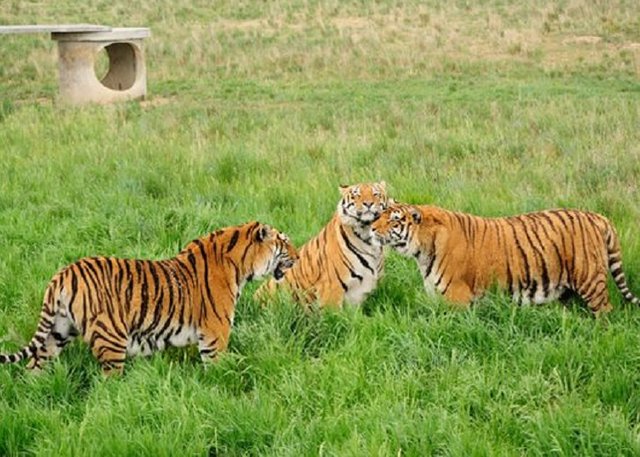
True sanctuaries struggle in unequal conditions in this regard, because they will not allow their animals to be disturbed just for a tourist to take a picture and pay a lot for it.
Everything costs money and the sanctuaries can not be 100% closed to the public, because they would not have money to feed or medicate the animals, but with CONSCIOUSNESS they can get the tourist to see those animals that he wants to see, without needing the animal to be troubled.
And the best thing in the world would be for all people to collaborate with the true sanctuaries, despite not being able to get in touch and photograph with the animals, because there we would be real people concerned with the welfare of those animals, leaving aside our desires and cravings, to give you what the animals need, without having to pay such a high price to get it
If you want to join in the fight for the rights of animals and be aware of the news that happen with the most beautiful beings on the planet, do not stop joining our community HERE
And if you want to Help @smace to continue Rescue, Healing, Feeding and Offering a real home for the Animals, please see THIS POST who show our work of so many years in favor of the domestic animals, and raise awareness of what animal welfare really means.
Thank you for writing this post.
Downvoting a post can decrease pending rewards and make it less visible. Common reasons:
Submit
Congratulations @smace! You have completed some achievement on Steemit and have been rewarded with new badge(s) :
Click on any badge to view your own Board of Honnor on SteemitBoard.
For more information about SteemitBoard, click here
If you no longer want to receive notifications, reply to this comment with the word
STOPIf you want to support the SteemitBoard project, your upvote for this notification is welcome!
Downvoting a post can decrease pending rewards and make it less visible. Common reasons:
Submit
Congratulations @smace! You have completed some achievement on Steemit and have been rewarded with new badge(s) :
Click on any badge to view your own Board of Honnor on SteemitBoard.
For more information about SteemitBoard, click here
If you no longer want to receive notifications, reply to this comment with the word
STOPIf you want to support the SteemitBoard project, your upvote for this notification is welcome!
Downvoting a post can decrease pending rewards and make it less visible. Common reasons:
Submit
Cool! I follow you. +UP
Downvoting a post can decrease pending rewards and make it less visible. Common reasons:
Submit
Congratulations @smace! You have received a personal award!
Click on the badge to view your own Board of Honor on SteemitBoard.
Downvoting a post can decrease pending rewards and make it less visible. Common reasons:
Submit
Congratulations @smace! You received a personal award!
You can view your badges on your Steem Board and compare to others on the Steem Ranking
Do not miss the last post from @steemitboard:
Vote for @Steemitboard as a witness to get one more award and increased upvotes!
Downvoting a post can decrease pending rewards and make it less visible. Common reasons:
Submit